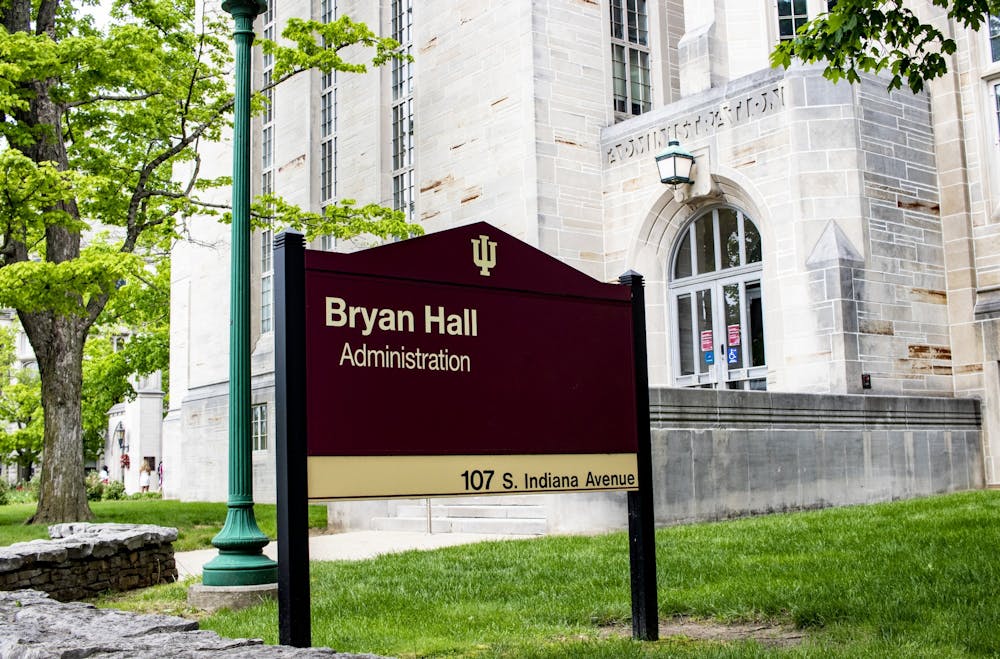The new Title IX guidelines for how universities respond to sexual assault were announced by the U.S. Department of Education on May 6. They were long-awaited, but the timing and content of the policy has caused IU staff to scramble and has angered students.
According to the new policy, assaults must now happen on campus to be tried, and witnesses on both sides are allowed to be cross-examined during hearings. The new policy also gets rid of mandatory reporters and narrows the definition of sexual misconduct. These are all changes to IU’s existing policy.
“I have to say, we’re pretty frustrated with the timing of these,” Springston said. “They’ve given us 90 days, which is a fairly short time to make changes to a policy.”
Previously, the Dear Colleague letter defined sexual harassment as "unwelcome conduct of a sexual nature. It includes unwelcome sexual advances, requests for sexual favors and other verbal, nonverbal, or physical conduct of a sexual nature."
Under the new definition, sexual harassment is “any unwelcome conduct that a reasonable person would find so severe, pervasive and objectively offensive.” The rules clarified the definition to include sexual assault, dating violence and stalking.
Springston said IU has other policies in place with broader definitions of misconduct than what is set by the new Title IX changes, one being the Student Code of Conduct, which extends to students even while off campus. She said she does not want students to think sexual misconduct not defined under the new Title IX policy is OK.
“We’re already broader than what these new rights say,” she said. “We just have to figure out how to do it now that the Title IX rights are very prescriptive.”
Rising junior Maddie Dederichs was a part of an IUSG Title IX working group her freshman year. The group was established after students protested IU’s Title IX process that summer.
She said she is worried how the changes will affect survivors wanting to come forward.
“More survivors are not going to want to come forward or they may not be able to come through because these regulations will not qualify their experience through these new policies,” she said. “I really see that this will give a lot more leniency to institutions on what they choose to move forward in the different hearing process.”
As a student who lives off campus, she feels personally affected by the new policy for off-campus assaults.
“It’s just not really giving the resources or really advocating for what a student’s experience is like,” she said. “We’re not really on campus that often as much as we are off.”
Attorney Amelia Lahn, a criminal defense attorney who often represents students accused of sexual misconduct at IU, said she sees some of the changes as positive, such as the ability to cross-examine the parties.
Previously, if a student on either side wanted to ask questions of the other or a witness, the student would have to write the question down, and it would have to be approved by the hearing panel chair, who would then ask the question. Now a student’s advisor, such as Lahn, can cross-examine.
“I think it’s a good tool for both sides to have,” Lahn said.
It means the accused can be cross-examined as well, which could strengthen the survivor’s case.
“I never thought I would agree with anything put out by the Trump administration,” Lahn said. “It makes the whole process more fair, and if the process is more fair, then you can rely on the outcome, and that’s better for everybody.”
Some of the policies that were clarified or added into the new regulations were policies IU already had in place, such as live hearings, an appeal process for both parties and notifying both parties of the specific details of the allegations.
Springston said she feels the Title IX changes are unnecessary.
“I don’t really see that the new rights improve upon our existing policies,” she said. “I think we have made changes over the years, with input from our student leaders.”
Dederichs said she hopes IU takes student opinions into account when deciding how to best implement the changes.
“The Department of Education is bringing forward a lot of regulations that don’t really align with what students want,” she said.
Most of all, Dederichs said she is frustrated with the timing of the changes, which she feels leaves students unable to fight the way they would want to.
When the changes were just proposals, IU students worked to share their opinions through forums and signed complaints.
“We’ve known that these regulations were going to be coming out sometime, but we didn’t think it would be happening in the middle of quarantine,” she said. “The middle of a time we are not able to be out in the streets, able to protest and able to march into different offices to be able to say, ‘hands off of our Title IX.’”




